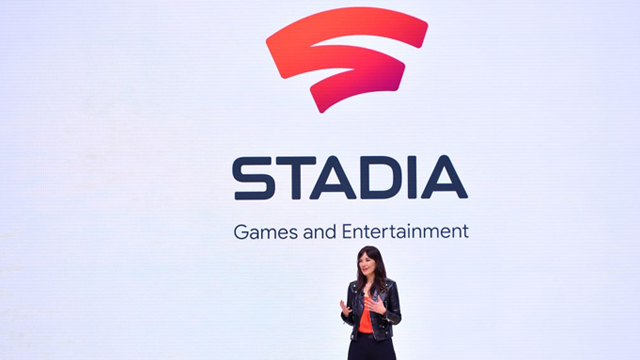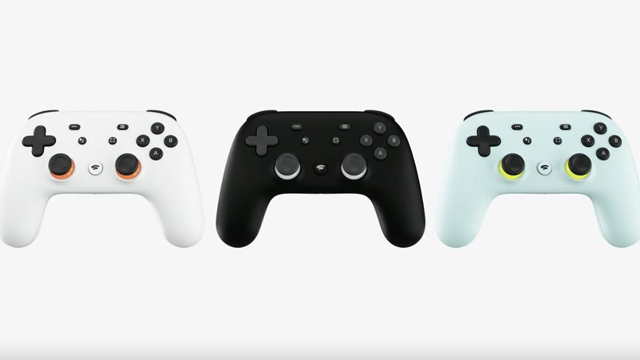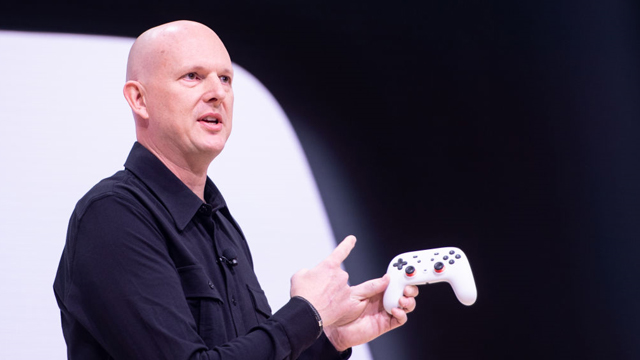Google just held its huge GDC 2019 presentation where it unveiled its new gaming platform, the Google Stadia. Rather than introducing yet another console into the already bloated gaming landscape, the tech giant is instead bringing a new streaming service that can offer high-quality PC gaming to any device that has an internet connection and can run Google Chrome. It was quite an impressive presentation and while the hype is understandable, it isn’t a technology that will instantly make consoles obsolete, as some have prematurely speculated.
The presentation proved that Google is taking its entry into gaming quite seriously. One of the most impressive moments was when it displayed, in real time, changing a game session of Assassin’s Creed Odyssey between a Chromebook to a mobile phone to a cheap desktop in a matter of seconds. There was no delay between devices, and the player was able to keep playing without any sort of interruption. As someone that who has used PlayStation Now on multiple devices, the ease of transferring from one platform to the other was a true delight as there weren’t any 15-second loads or initialization processes to go through.
However, while what Google showed was undeniably impressive, there are still more questions than answers surrounding Stadia. The fine details haven’t been laid out, with a vague 2019 launch date being all the information we have regarding its launch. Will there be a price to access the platform? Will it be tied to a subscription service? These are all fair worries to have at this point and Google isn’t going out of its way to answer them yet. Furthermore, even if it did live up to everyone’s desires, there are still structural issues that will make Stadia a platform for the future of gaming rather than replacing the current status quo.
The current issues with Stadia

The most notable issue is that not everyone has access to high-speed internet, which is a requirement for Stadia to work. Despite Google advertising 4K HDR streaming at 60 FPS, my YouTube stream took time to buffer during their presentation, stuttered a few times, and had a few graphical errors. Considering I live in a major US city, it’s quite telling that most people won’t be equipped for this sort of technology just yet. Streaming might be the future of gaming, but there’s a reason why so much of the world has been resistant to this change.
This isn’t just an issue that impacts those in rural areas. According to Internet World Stats, as of December 2018, only 55.6 percent of the world has internet access at all, let alone high-speed access. Considering Google wants to expand gaming beyond its current base, there is still a lot of work to be done in just making Stadia available to all.
Another issue is that simply building a great platform isn’t enough to get people to change their gaming habits and switch to it. One only has to take a look at the Xbox One X to know that. Systems live or die by what exclusive titles they have. Google did announce that it’s forming a studio called Stadia Games and Entertainment led by Jade Raymond, formerly of EA Motive and Ubisoft.
Specifics were sparse, but it did say that it’ll try to “reimagine the new generation of games” and that the developer will work with external studios. This sounds promising, but so did Raymond’s last studio, EA Motive, which led to a disappointing Star Wars Battlefront sequel and a canceled action game. Players won’t make a leap and change their gaming habits until they are given a good reason to, and Google will have to deliver the goods first as thits current words are just empty promises without anything to back them up.
Another worrying part of Stadia is how often Google will launch a service and then abandon it a few years down the line. Google Hangouts, Google Reader, Google Plus. These are all services that had plenty of promise and delivered innovation, but Google never fully invested in them. Will the tech giant give up on gaming the same way? If things don’t work out immediately, I wouldn’t be surprised to see Google cut their losses. After all, history tends to repeat itself.
However, the future is bright 
Despite my reservations, I still came away quite impressed by Stadia. Many of the ideas presented are genuinely innovative (even if the specter of OnLive hovers above it), and will undeniably be a part of gaming in the future and plenty of the issues will be solved in time. High-speed internet access improves every single year and will continue to do so. While I might not be able to enjoy a product like Stadia without issues in 2019, it’s likely that the current internet infrastructure will improve in the next five years or a decade from now. Google is positioning itself to be a major player in gaming long-term rather than entering the market and causing disruption immediately.
Google Stadia is also a great idea that is built for where society is heading. Many people use multiple electronic devices every day. A phone during their transit and downtime, a tablet in bed or relaxing, and a television or monitor while enjoying entertainment. There is no shortage of options and with technology constantly improving, this type of jumping between devices will only become more common. This is why Stadia’s design, and being able to switch devices without issue, is such a huge advantage to it. The Nintendo Switch has gotten a ton of shine out of being a flexible system either on the go or docked at home, and Stadia can go anywhere or any sort of device with the significant caveat of their being high-speed internet access.
Overall, there are so many reasons to be excited about Stadia. If positioned correctly and it delivers on its promise, then it will absolutely change gaming for the better. However, this change won’t happen later this year. It’ll happen slowly over time and will take time for gaming habits to change.
Image Credit: JOSH EDELSON / Contributor / Getty Images,











